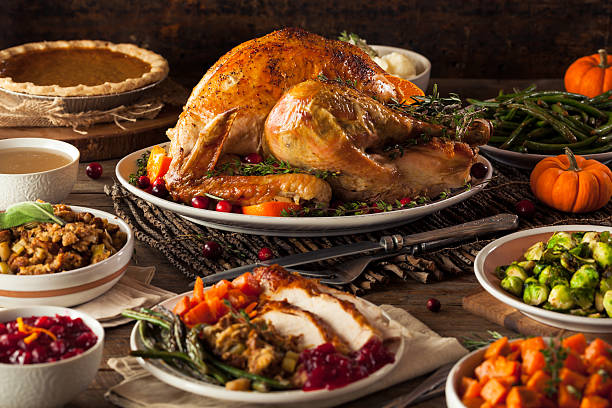by Connor Parks
Aren’t you just SO EXCITED to go home for Thanksgiving this year? Those long-awaited “welcome backs,” hugs from grandparents and pets, rediscovering showering without shoes… and the inconsolable existential dread of political polarisation? If you’re anything like me, the anxiety of election aftermath may be seriously overshadowed by the unease of the atmosphere you’ll be returning to in late November. From aunts and uncles whose questionable opinions may begin to slip out after a few beers, to terms which could (at best) be classified as “outdated” being tossed around freely by the Golden Years-crowd, there’s no telling the sort of antics this post-election season may bring to an otherwise enjoyable holiday.
I like to consider myself a pretty politically-invested person. With my love of polls and pundits, I’ve said it for years: elections are all fun and games until someone wins. Though the event itself is long past us, the post-election ambience lingers around campus like an impenetrable murky haze just as it does nationwide, and you likely know just the kind of environment you’ll be returning home to. What I’m trained in, though, is how to subtly and slyly ensure that the political discussions between the pecan pie and the Packers game are held to a minimum. Maybe, if you’re lucky, they’ll even be avoided entirely. As someone who’s honed this survival skill since the ripe age of 7, here are my seasonal suggestions for prioritising your mental health by diverting painful political talk during Thanksgiving:
- Appealing to Childhood Stories: This one’s a classic in my repertoire. Who doesn’t love hearing about Dad’s failed middle school romances, or your own big firsts in life? Bringing up themes and stories from your own youth or asking about those of your family can be a great distraction, and a way to enjoy table camaraderie. Although it’s a way to detract from political talk, I’ve found that I actually tend to gain a lot from these sorts of conversations regardless of motive. You may end up laughing half to death from hearing a new tale from Grandma’s teenage years or gaining valuable insights into just why Uncle Matt is the way he is today.
- Sports: This one really only works if you’ve got a family who appreciates sports, but the ability to ramble on about SEC football, early-season NBA, the World Series or otherwise can take up hours of valuable conversation time otherwise filled with politics. The more contentious the season – and the more avid fans you have in the family – the better. Of course, certain athletic figures are at times politically linked, so try and steer towards more general trends, scores, and future outlooks, if possible. I remember being a bit too player-specific with this one during the Kaepernick years – it didn’t work out too well.
- Center the Pets: Doesn’t everyone love a good bit of fun with the pups? From discussions about their daily antics to actively engaging them at the dinner table, focusing on the (likely) apolitical lives of your family’s beloved animals can detract from anything regarding the election. This one’s always a safe bet for something that’s relatively inoffensive to anyone involved in the conversation.
- Compliments to the Chef: Who cares if Great Aunt Cyndi’s “Special Potato Casserole” tastes like drywall and putrefied deli meat? From the delicious to the disgusting, having things to say about the day’s big meal can be uplifting and conversation-inducing, drawing the whole family into a discussion of what unites us best as humans: food. This can also lead to discussions that tie into further diversions: where’d you get this recipe from? How long did it take to make this? What kind of desserts did your parents like to make? It’s a pliable and positive subject, and it’s always worked wonders for me.
- Leave: If all else fails and a raucous political discussion you disapprove of breaks out, remember your right to individual autonomy. Sometimes, it’s as simple as excusing yourself subtly to go to the restroom or dipping out to watch the dog show in the living room with the cat and three snoring grandparents. Other times, though, it’s okay to affirm you’re not going to get involved in something which could cause you mental harm or could even include hateful or problematic language towards others. The right to enjoy your Thanksgiving is in your hands, and it’s okay to strike a balance between loving your family’s company and taking time to know your own truth.
Whatever your Thanksgiving season looks like this year, it’s inevitable that opinions on the election and America’s future will somehow sneak their way into an otherwise enjoyable conversation. With over a decade’s worth of experience in finagling myself out of these sorts of touchy subjects, though, I hope to have provided you with a few useful mechanisms for achieving optimal mental health as Turkey Day nears. Here’s to a peaceful, agreeable, and generally stable holiday, and I hope to see you all sane on the other side!

